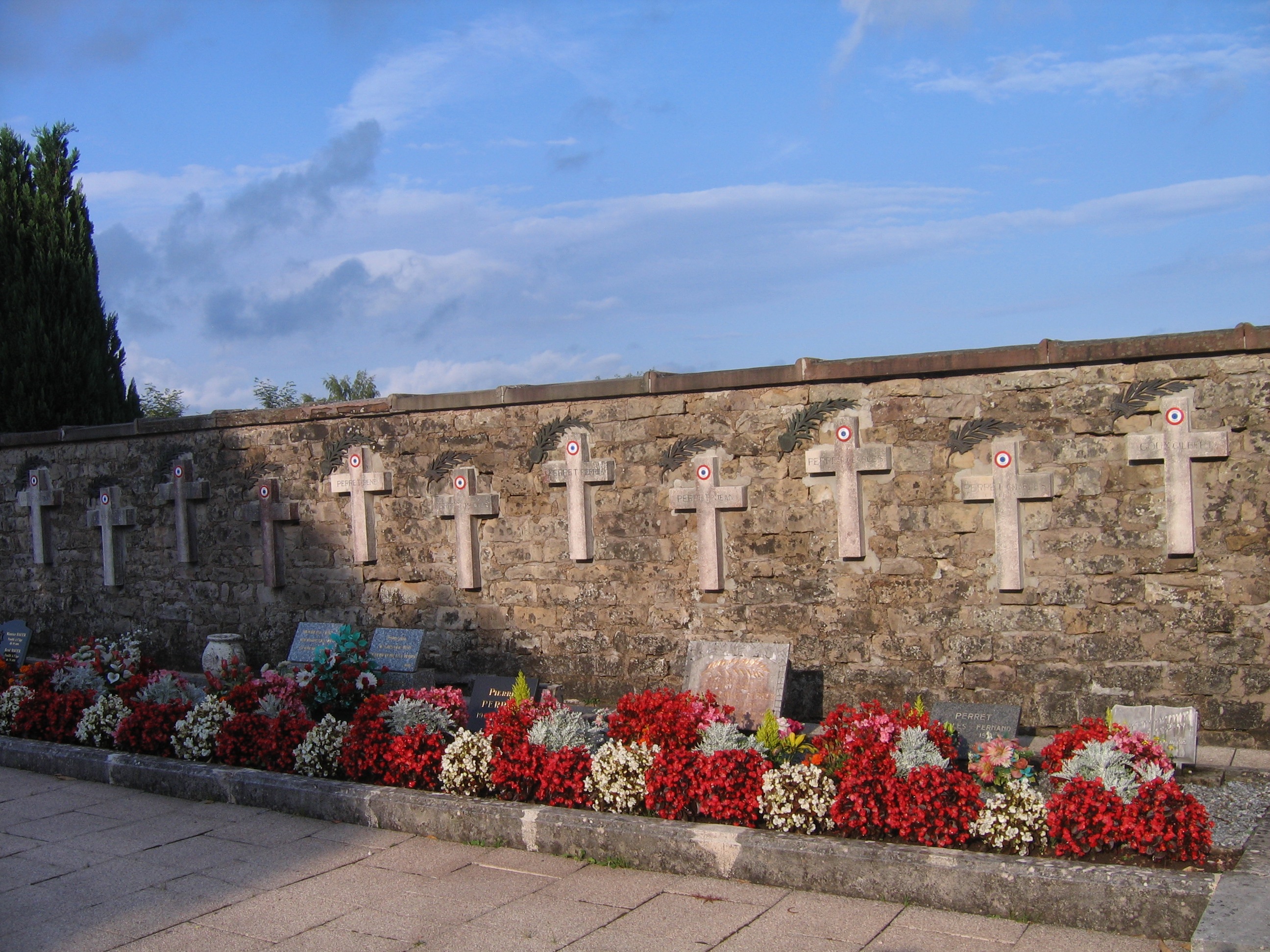Death of an Occupier
The German officer who had fought to escape capture in Etobon lies in a field. Jules Perret had gone home to supper, but had to return to the place where the officer fell to see what would happen next:
"When I come back, I ask [my son] Jacques, “Is it over?” “I think so, but he’s not completely dead.” It’s the cook who has the sad honor to put an end to this battle. They bring Besson back in a coma. M.P. then tells me that they’ve killed another officer on the road at the head of a column of troops, as he gave orders to stop the retreat and hold their positions. OK. We can’t celebrate yet.
"Another German car. It’s fired on. It escapes on roads that aren’t even worthy of the name. We’re paying attention now!
"We go to bed. What a day! We’re up again early. A few of us are going to bury the officer. We decide to put him in a dip in the ground, in Charles Suzette’s field, near my poplars. We dig a little and then go to get him. It’s raining. It is a moving sight. There he is, lying on his back, stretched out, hands folded on his chest, eyes closed, helmet on his head. Alfred says, “I’m the one who closed his eyes when he died.”
"I gather up his papers, his photos, to let his family know, later on. He has a pretty wife, beautiful children. This awful war! We carry him on two shovel handles and lay him out with respect in his little grave, not deep enough, but we had to do it quickly. According to his papers, he was a Catholic. (I kept these papers a long time, but since I had to hide them, I can no longer find them.)
"I’ve been at war more than four years, the other one for five years, but it’s the first time I’ve seen a German soldier killed."

 Katherine Douglass
Katherine Douglass